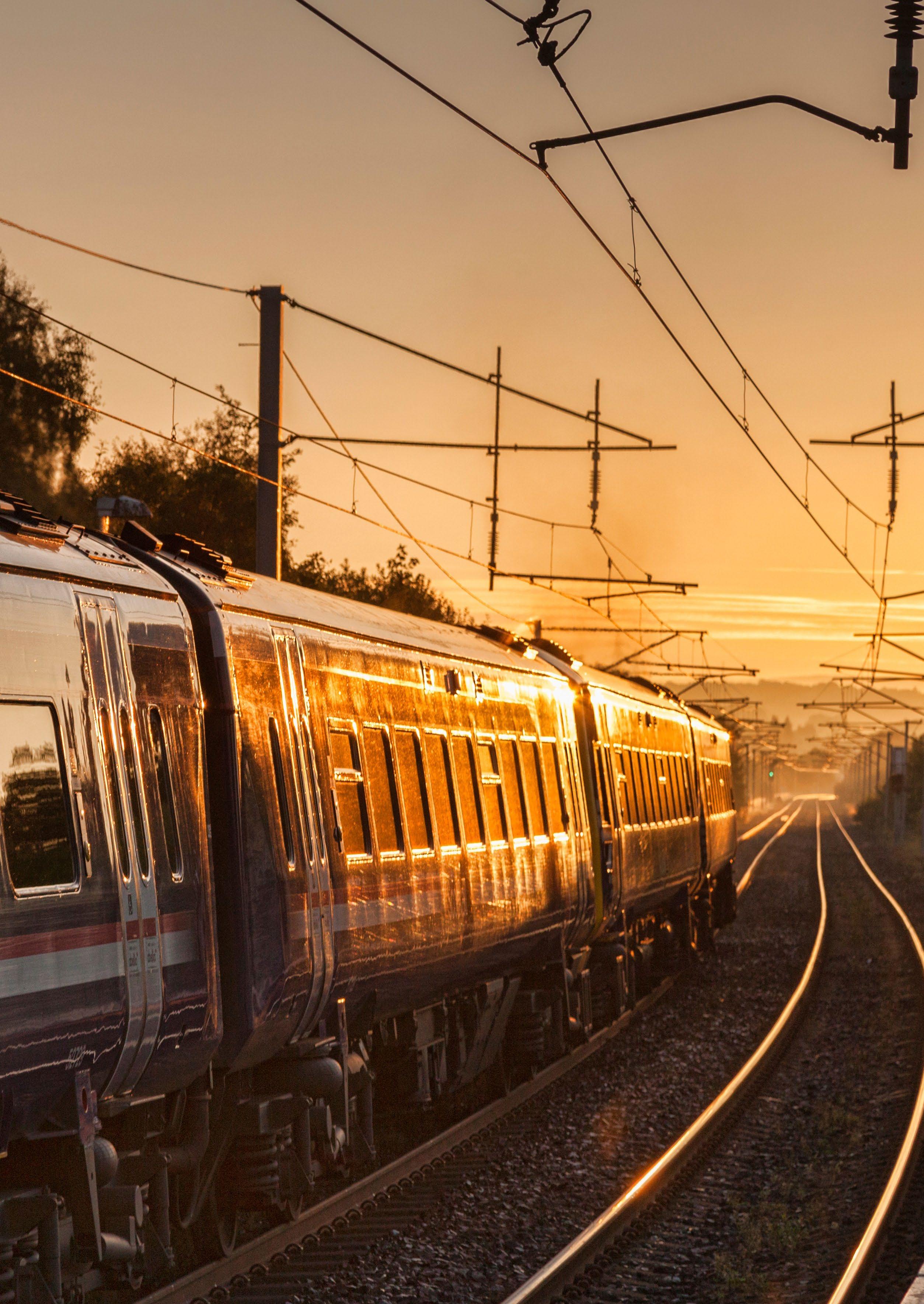
3 minute read
Transport Decarbonisation Plan
Progress report two years on | June 2023
Two years on from the publication of the report, RIA has revisited the TDP commitments to carry out a quantitative analysis of their progress as part of the RailDecarb23 campaign. We have reviewed all the commitments made in the July 2021 TDP against public announcements up to May 2023. Each commitment has been rated as follows: Red – commitments not met; Amber – commitments partially met; and Green – commitments met.
Advertisement
The detailed assessment is presented sector by sector in the later sections of this document and is summarised below:
July 2021 Transport Decarbonisation Plan progress against commitments
May 2023
It is readily apparent from this graph that the Government is making significantly less progress against its commitments for decarbonising the rail sector compared to other transport sectors. This is a serious concern to RIA and its members – and the lack of progress is difficult to understand when the railway industry has credible technical solutions for decarbonisation and supporting delivery plans. Lack of decisions to progress these plans risks the railway industry falling behind other transport sectors when it comes to decarbonisation and prevents rail businesses planning for the future.
2. Conclusions
It is clear that, compared to other transport sectors, the Government is not meeting its commitments for rail decarbonisation. This represents a lost opportunity for the rail industry to demonstrate how it can deliver efficiently, make significant carbon reductions, and improve rail services through the modernisation that comes with decarbonisation.
3. Recommendations
To empower rail to fulfil its immense potential, RIA urges the Government to refocus on the commitments in the Transport Decarbonisation Plan and take the actions necessary to catch up with progress in other modes. Doing so will enable the UK to reach net zero transport by 2050.
The July 2021 commitments were very consistent with the those sought by the railway industry as part of RIA’s RailDecarb23 campaign. We therefore urge the Government to adopt the RailDecarb23 four-point plan to accelerate rail decarbonisation.
i) Immediately implement a rolling programme of costeffective electrification on intensively-used lines
38% of the UK rail network is electrified – much less than comparable European countries. Electrified railways have been shown to benefit passengers and the wider travelling public as they:
● Are better for the environment, with carbon emissions 60% lower than those from diesel trains today and 80% less with the estimated 2040 grid mix; they also produce no air pollutants at the point of use;
● Cost less in the long term when compared to the whole-life costs of diesel services;
● Improve journey times due to superior braking and acceleration;
● Reduce passenger delays, as electric trains are more reliable than diesel trains;
● Are quieter, reducing noise pollution for those living and working near the tracks and reducing noise and vibration for passengers;
● Are lighter, meaning less wear to the track and therefore less maintenance; and
● Are the only decarbonisation technology suitable for freight trains and faster passenger trains (above 100mph).
Electrification in the past has been delivered in peaks and troughs of work, providing the industry with a significant amount of work over a few years, followed by a ‘cliff-edge’ in activity. This has contributed to higher costs, as the sector is unable to retain the skills and expertise. In contrast a consistent workload in Germany has supported much lower unit costs.
A rolling programme of electrification could reduce costs by up to 50% compared to some past problem projects, as demonstrated in RIA’s Electrification Cost Challenge report
ii) Ramp-up fleet orders of low carbon rolling stock using new traction methods on less intensively-used parts of the network, including hydrogen and battery
There are parts of the network where electrification will not be a cost-effective solution and where technologies like hydrogen and battery will have a role. The industry has demonstrated its ability to offer these new technologies, with a number of rail suppliers working on low carbon rolling stock solutions. However, despite the fact that immediate carbon reduction could be achieved, no significant fleet orders have been placed for these technologies.
A significant fleet order of new rolling stock would stimulate a new industrial sector, creating and retaining jobs and intellectual property in the UK whilst accelerating the decarbonisation of the network and supporting future exports. There is an opportunity for UK rail to become a global leader in battery and hydrogen technologies, with rail demand helping to create the UK market necessary to stimulate growth and kick start the zero-carbon economy.
iii) Government, Network Rail and other rail clients to work with suppliers so they never lose out for offering lower carbon solutions, but are incentivised to reduce emissions
Many rail suppliers have set out their own route to net zero and are actively innovating to reduce the carbon in the goods and services they supply. Clients such as Network Rail (NR) are supporting this by asking suppliers to sign




